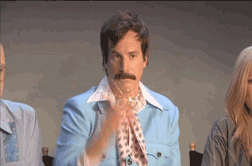Body positivity is finally beginning to become mainstream in today’s fashion industry, with celebrities such as Zendaya Coleman and Khloe Kardashian creating body-inclusive clothing lines. These lines range from sizes 0-24, with no separation titles such as “Plus Size” or “Curve”. Inclusivity is beginning to touch more aspects of fashion and clothing brands, creating for more coverage of body positivity in mainstream media.
The fashion industry has always been destructive to the self esteem of women and men alike, creating a definitive barrier between “skinny” and “fat”. The Social Comparison Theory has proven itself to be true surrounding the fashion industry. The theory states that we determine our own self worth, both socially and personally, based on how we amount to others. With the introduction of “plus size” models into the industry, the comparisons are getting increasingly positive.
One issue that still needs to addressed is the “plus size” label. With it comes implications that your size is a separate entity, that you are still being rejected by fashion industry norms and principles. The labels lead to a feeling that there is a distinct line excluding women from what they see and what they can wear. Amy Schumer is most famous for her controversy with the label of plus size, saying on The Tonight Show Starring Jimmy Fallon, "We don’t need these labels. We don’t need them. It should just say what size you are, right? Why?"
Daya by Zendaya proves that the labels are unnecessary. 20-year-old actress Zendaya Coleman recently launched her new clothing line, consisting of a broad collection of tops, bottoms, dresses, jumpsuits, and outerwear available in sizes 0 to 22. Numerous other lines have recently launched with inclusive sizing, but Zendaya is concerned about making this approach standard - because at this point, why is it not? "That’s why I made sure that in my e-commerce photos there was thick girls in there, not like, 'Oh, you have to go to a section to find thick-girl models in the clothes,' — it should feel normal," Zendaya says. "You should just scroll and see one — that’s how it should be. It should come to a point where it’s not thought about. Hopefully we’ll get there."
Celebraties such as Ashley Graham, Candice Huffine, Zach Miko, Tara Lynn, and Precious Lee, among many others, have become pioneers for the modeling industry. Ashley Graham’s appearance on Sport’s Illustrated was the first time a plus-size model graced the cover of the magazine. Seeing more models in mainstream media whom women and men can relate to is an important first step in the movement for body positivity.
However, the integration of diversity among body type and ethnicity in the modeling industry still has a long way to go. Body inclusive clothing lines are a step in the right direction to taking away the “plus-size” label and towards seeing models of all shapes and sizes on high fashion runways. We are lucky enough to be living with the movement for body positivity - inclusivity just needs to become the norm for the fashion industry in order to provide a productive, positive future for women and men alike.


















































